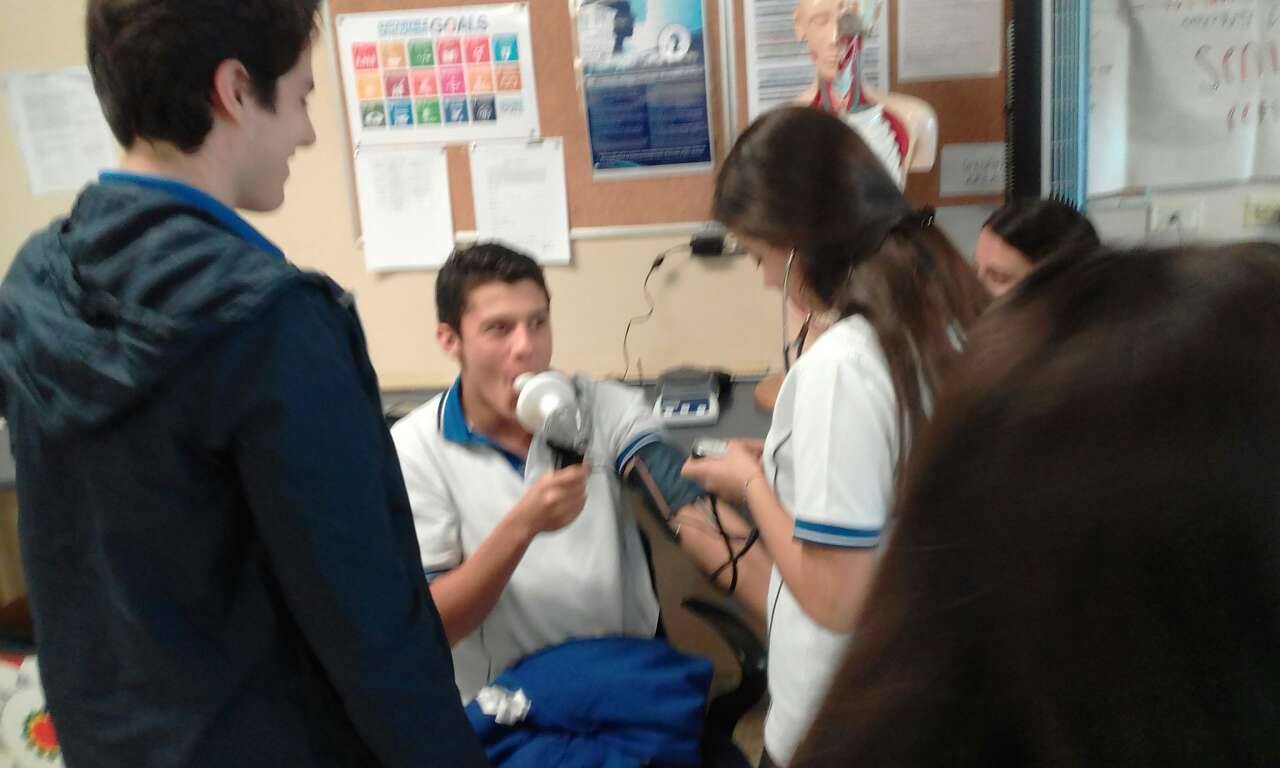A few months ago the Lincoln school acquired a unique resource; a therapy dog, Jake. Jake can be reserved by classes, or visited by appointment. Scientific evidence is mounting that owning a pet can improve your cardiovascular and mental health. Blood pressure, pulse rate and incidence of heart disease have all been lowered in recent science studies (time magazine). According to a recent article in time
“In one study, a stressed-out group of adults were told to pet a rabbit, a turtle or their toy forms. The toys had no effect. But stroking a living creature, whether hard-shelled or furry, relieved anxiety. It worked for people regardless of whether they initially said they liked animals.” (time magazine).
What is stress? According to a journal review article on proven stress therapy (), stress is defined as something that threatens the homeostasis of an organism, or a perception of danger. Stress is bad for you. At least, in the chronic sense (long-term, rather than acute). I remember attending a conference where the famous cancer investigator, Dr Bruce Ames (of the Ames test), said that “there is not one single human disease that is not made worse by stress, including cancer”. This should be differentiated from ‘excitement’, or emotional arousal, in that the emotion experienced is one of danger or intense worry. It is noted by psychologists that although stress has a physical manifestation, such as higher pulse rate, it begins in the brain with stressful thinking (Bless and Grousse). Short bursts of worry, such as the rush of emotions when taking an IB exam, may not be so bad for you. This is an acute experience of stress, and should be followed by relief – the outpouring of laugher, shared experiences and commiseration that can be seen outside any exam hall. Chronic stress is experienced when there is no relief, or too little relief.
And it’s a problem in schools. Studies carried out in 2004 (UK, MRC), 2014 (in the US), and others have stated that ‘students are stressed like never before , or like adults’. Which brings us to the interesting part. How do we deal with stress. We can try to tackle the cause, or we can seek to reduce the stress through stress therapy. Enter Jake the dog.
This week in IB Biology students looked at four indicators of stress:
- Pulse rate
- Blood pressure
- Electrocardiogram (ECG/EKG)
- Spirograms, or graphs showing patterns in breathing
One class looked at music therapy, by choosing a song which was voted by the majority of the class as being the most relaxing – “Jack Johnson’s beach strummer – Banana pancakes”, subjects were treated to a seated listening session of this tune while the apparent effect on these stress indicators were measured.
Results are still being collected, stay tuned for the results!
Bibliography:
- Bless and Grousse. Science and emotions after 1945. University of Chicago Press.(2014)
- Teens more stressed than ever before. accessed from (https://www.nbcnews.com/health/kids-health/teens-more-stressed-out-adults-survey-shows-n26921)
- Pet therapy: science proves owning a pet…accessed from (http://time.com/4728315/science-says-pet-good-for-mental-health/)








